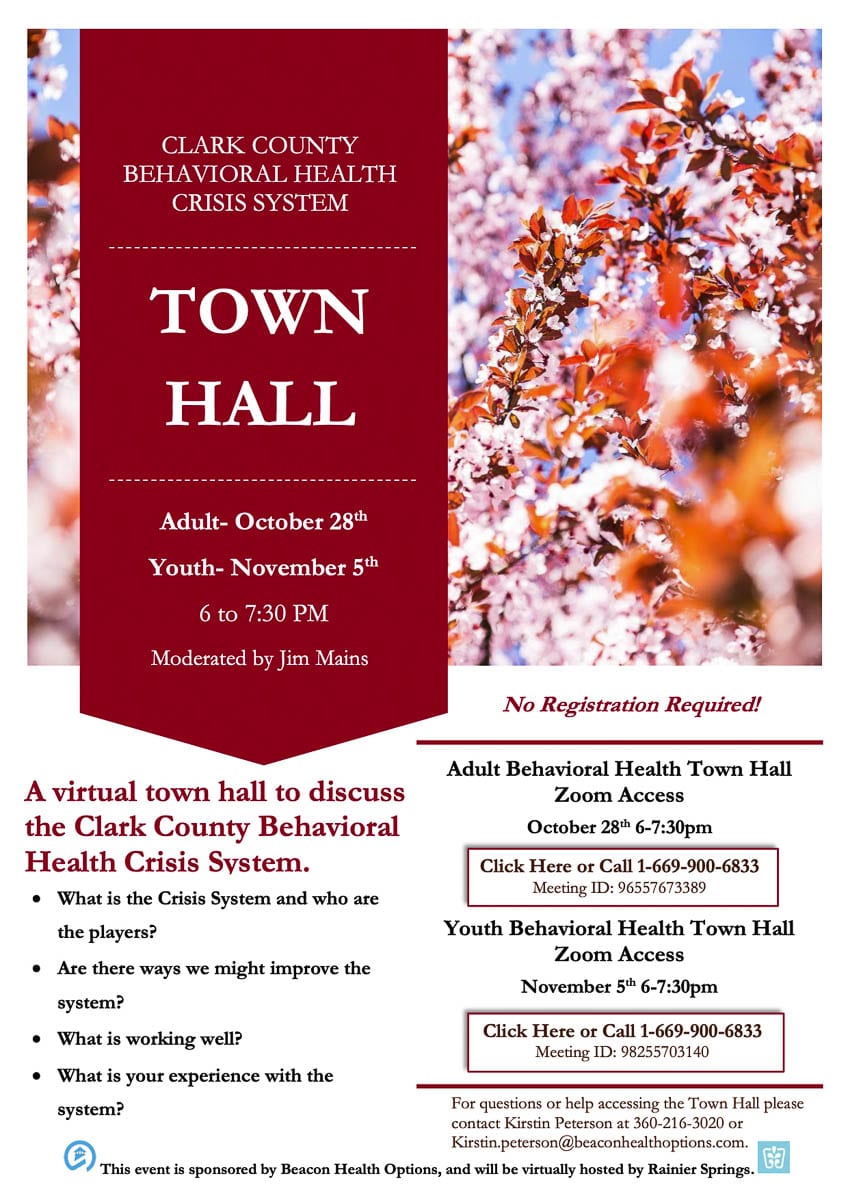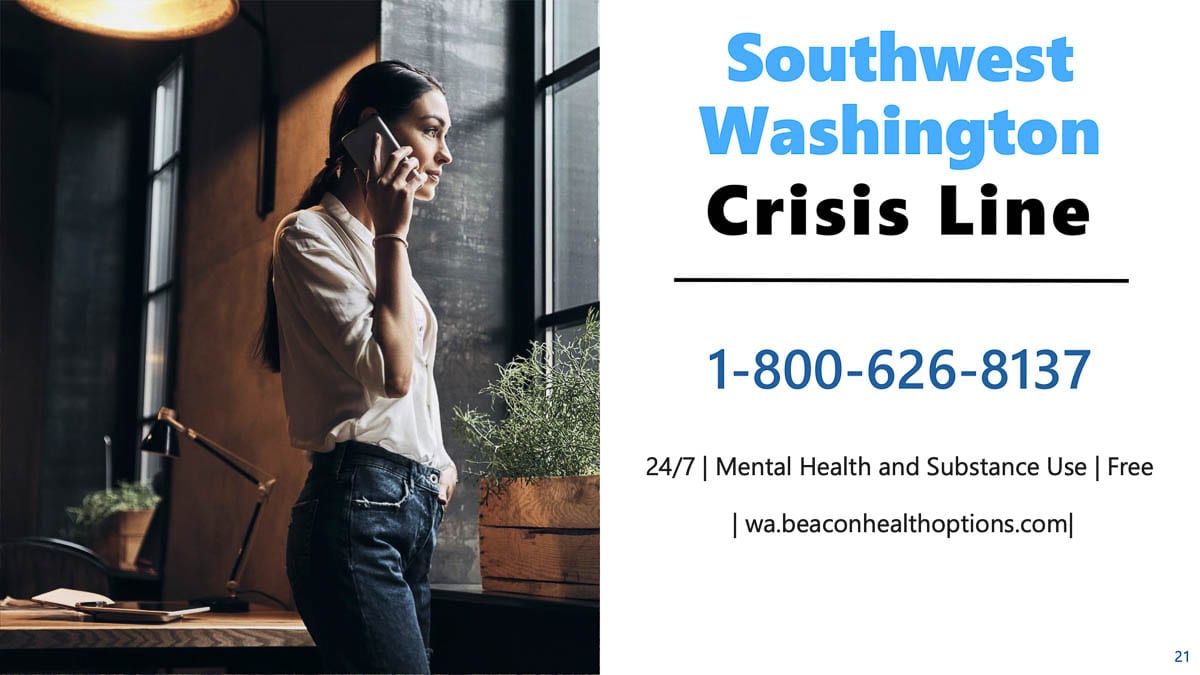Beacon Health Options and Rainier Springs help bring virtual events to community
CLARK COUNTY — Behavioral health is a unique segment of care which is often mistaken or incorrectly lumped in with mental health. The Clark County Crisis Collaborative is hoping to change that.
Tonight, (Oct. 28), and on Wed., Nov. 5, the group will host town hall meetings through Zoom, by way of partnerships with Beacon Health Options in Camas and Rainier Springs in Salmon Creek.

The first night will be focused on behavioral health with adults and the second on the same subject as it pertains to young people. With the ongoing effects of the COVID-19 pandemic, the organization seeks to touch on ways to practice good behavioral health habits and seek the proper care if needed.
“[The collaborative] brings all of them to the table to discuss the issues that the community is seeing and the barriers that they’re seeing,” said Community Engagement Coordinator for Beacon Health Kirstin Peterson. “Triaging those and finding creative ways to make sure the system’s running as effectively as it can.”
Many of the organizations that make up the collaborative, provide services to the community through outreach and actual care. The Behavioral Health Crisis System for Clark, Skamania and Klickitat counties is run by Beacon Health, and the provider continues to work with predominantly communities in need.
Operating a crisis line in the region is a staple effort of the collaborative.

Mental health fits into behavioral health, but the latter also includes other issues, such as addiction. In an effort to get the communities thoughts on this area of health care, a survey was put out through Oct. 19. The results concluded the following key points:
- The crisis line and the ER remain the most utilized crisis services.
- Over a quarter of those who responded were unaware of the mobile crisis teams in the area.
- There exists access to limited services – few facilities, lack of prevention services, no services for Autism/DD, insurance difficulties.
- The threshold is too high for crisis services, coupled with lack of preventive services in the community.
- Cultural, racial, language barriers are a factor.
“This behavioral health crisis system, it’s for the community,” Peterson said. “So we want to know how the community is experiencing it, and if they’re experiencing negative things that we’re able to impact. We would want to know if there’s things that they believe that are working well. We really can’t drive effective change without that community input.”
The town halls are targeted at receiving the stories of real people, according to the collaborative, beyond what can be gleaned from a survey. Subsequently, participants will be allowed to offer their opinions and ideas, as well as ask questions.
With suicide increasing by 25 percent from 1999 to 2017, the collaborative sees a greater need than ever for readily available behavioral health tools. Add to the mix the opioid crisis and pandemic, and the group sees enhanced first responder training and community awareness as imperative.
Youth may be some of the hardest hit in the community, especially if they have a lack of resources like internet connection.
“That inability to have those face to face interaction, whether that’s at school, or whether that’s with their behavioral healthcare provider, or with friends with family, it’s that lack of interaction,” Peterson said. “And while we’re also seeing that with adults, it seems to be a little more debilitating for youth, because they don’t always have the opportunities to utilize those forms of outreach like adults do.”
The collaborative is also encouraging people to join groups designed to support youth and members of the community in healthy behaviors. FYSPRT, Family Youth System Partner Round Table, is a group that meets on the third Monday of the month virtually and is a community-based group of youth, families, professionals and community members from Clark, Skamania, and Klickitat, counties.
The group’s members are passionate about making needed changes in the system of care that serves youth and families with complex mental health needs, according to the collaborative.
There is no registration required and both town hall events are free to the public. Each night will go from 6:00 p.m. to 7:30 p.m. The Zoom meeting ID and call in number can be found in the graphic above. Visit the Beacon Health website to learn more about behavioral health.




